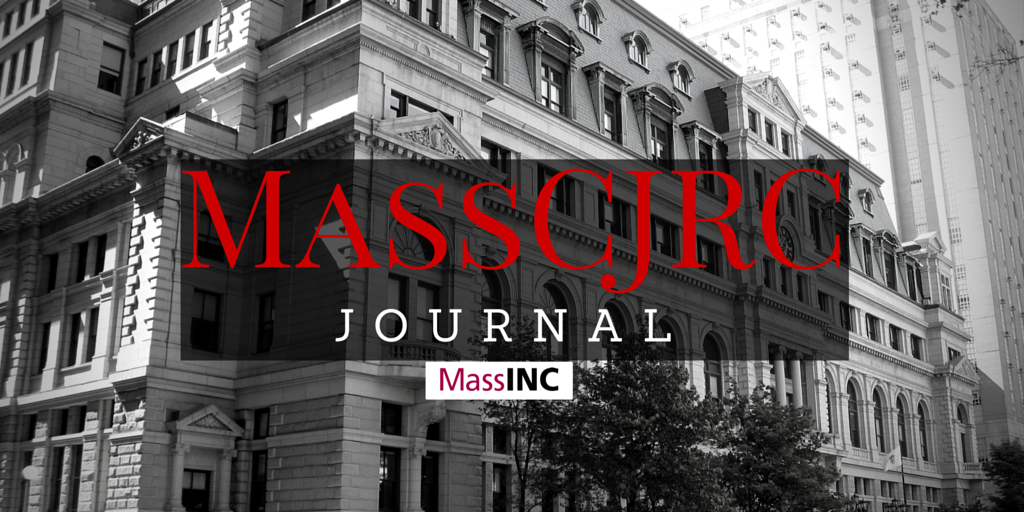The latest incidents of tragic violence in communities of color across the county have drawn greater attention to criminal justice reform. The public increasingly recognizes that we are asking too much of our police when we send them into neighborhoods torn apart by decades of disinvestment, racial discrimination, illegal drugs, and the proliferation of guns. While recent MassINC Polling Group figures affirm that the Boston Police Department has built public trust by responding with bravery and professionalism, a significant subset of the community has come to fear the police officers they need to turn to most for protection.
Comprehensive criminal justice reform is one of the main answers to this challenge. This was heard loudly and clearly this week when the nation’s oldest and largest law enforcement association called on the presidential candidates to embrace policies that reduce incarceration. We cannot continue responding to urban challenges with tough-on-crime era incarceration practices that increase recidivism and lead to yet another police call. When officers intervene and bring an individual that has been victimizing the community to the justice system, they should have confidence that the individual will not return from prison posing an even greater danger.
The Council of State Governments’ comprehensive review of our criminal justice system offers a real opportunity to address recidivism. Just this week CSG analysts met with our criminal justice leaders and shared data that pose serious questions with respect to how Massachusetts prisons serve young adults of color. In order for this process to lead to real improvements in the urban communities most impacted by the lapses of our criminal justice system, the experiences of these residents must be heard. MassINC is partnering with community organizations across the state to capture these voices and help engage these residents in the comprehensive criminal justice reform policy debate. To hear their powerful stories, visit www.stuckonreplay.org.
–Ben Forman
BPD Chief Gross talks #StuckOnReplay
https://www.youtube.com/watch?v=U1on1xncXJM
From Washington
The Obama administration outlines the improvements needed in criminal justice system and announces a broad series of new criminal justice executive actions aimed at reducing recidivism through education and job training programs and other supportive measures, including the creation of a new digital platform that will allow state and local officials to share successful data-driven criminal justice reforms.
After a week of tragedy and protest, Democrat presidential nominee Hilary Clinton steps up her call for criminal justice reform on the campaign trail.
Senate Judiciary Committee Chairman Chuck Grassley (R-Iowa) is not optimistic that a once promising bi-partisan criminal reform bill will pass this session.
Stuck on Replay, a new collation of youth and community activists gathers in Roxbury to inject their voices into the state’s criminal justice reform conversation.
The Council of State Governments holds their third public working group meeting.
In a Boston Globe op-ed, Stephen Goldsmith and Jane Wiseman lament that Massachusetts is not part of the Obama Administration’s new Data-Driven Justice Initiative and has fallen behind other states adopting pretrial risk assessment tools.
A move by the state court system to block routine online access to information on criminal proceedings in superior courts is drawing criticism.
Among the States
The Rhode Island Senate passes a comprehensive justice reinternment bill that will not be taken up by the House Chamber.
Alaska Governor Bill Walker signs a sweeping reform bill that aims to lower the prison population by 13 percent over the next eight years, saving the state $380 million dollars.
Georgia passes criminal justice reforms including lifting the lifetime food stamp ban for drug felons.
Kentucky Governor Matt Bevin announces the creation of the Criminal Justice Policy Assessment Council to focus on building on the recent successes of state programs like the Second Chance Offender Rehabilitation and Education system.
Illinois lawmakers fail to come to an agreement on criminal justice reforms before leaving for summer recess, despite agreement from both parties that reform is needed.
Activists in Florida launch the organization Floridians for a Fair Democracy, aimed at removing the ban on voting for formerly incarcerated individuals.
From the Researchers
A new study in Criminology examines how criminal records adversely impact those with both minor and more serious criminal histories.
The Vera Institute issues a new report on recent trends in state sentencing and corrections reform.
Marc Levin talks about effective criminal mediation at the Aspen Ideas Festival.
A panel at the Aspen Ideas Festival brought to light the largely neglected issue of prosecutors in the United States and the huge but underexposed influence they can have on the justice system.
Rand looks at the efficacy of new diversion models for individuals with mental illness and substance use disorders in Europe.
A new study in Criminal Justice Policy Review shows jail diversion programs for indigent defendants can lower recidivism.
In the Media
Laurie Garduque writes about the slow progress of criminal justice reform and the lack of research on jails and local level justice systems and their effects on mass incarceration in the United States for Fox News Opinion.
A powerful floor speech by Republican Senator Tim Scott (R- SC) on being stopped by Capitol Hill police trying to enter the Senate Chamber leads Time Magazine to ask why Republicans are not leading more on criminal justice reform.
The PBS New Hour looks at how Massachusetts is working to break the school-to-prison pipeline for young offenders by providing education to youth in detention facilities
The Atlantic cover a panel at the Aspen Ideas Festival, including our own Adam Foss, discussing the role of prosecutors in criminal justice reform.


